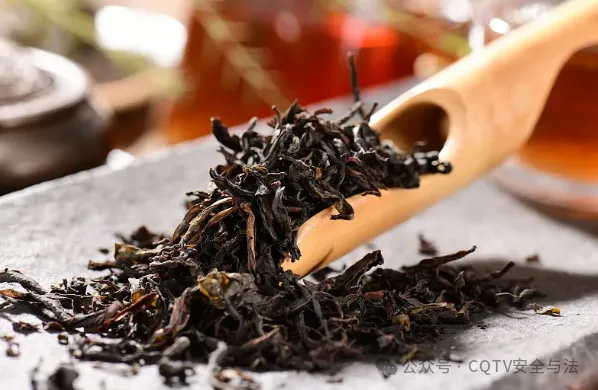Is black tea once again in the spotlight? Doctors have discovered that when drinking black tea, there are several points to pay attention to for the sake of health. “Lao Li, why haven’t I seen you drinking black tea lately?” Lao Zhang asked with a puzzled look at Lao Li. Lao Li sighed, “Don’t mention it, I’ve been feeling off lately, especially in my waist, which aches intermittently. I’m wondering if it has something to do with the black tea.
” Lao Zhang widened his eyes, looking confused: “Isn’t drinking black tea good for the body? How could…” Lao Chen, who was nearby, chimed in: “Lao Li, did you drink black tea incorrectly? I’ve heard before that there are precautions to take when drinking black tea, such as not drinking too much and paying attention to the timing and method of consumption.” Hearing Lao Chen’s words, Lao Li felt a pang in his heart. He indeed hadn’t paid much attention to these details. Now, reflecting on it, he realized that he sometimes drank a bit too much and even drank on an empty stomach. Could it be that he was indeed drinking it wrong? In recent years, black tea, with its unique taste and aroma, has been favored by middle-aged and elderly people. However, doctors warn that there are nuances to drinking black tea, and improper tea-drinking habits may lead to unnecessary health risks. So, what details should one pay attention to when drinking black tea?01 What are the benefits of regularly drinking black tea? As a common beverage, black tea is not only rich in taste but also offers a variety of health benefits. Black tea is rich in antioxidant components such as polyphenols and flavonoids, which help to eliminate free radicals in the body, slow down the aging process, protect cells from damage, and boost immunity. Additionally, the caffeine in black tea can stimulate the nervous system, enhance brain vitality, and relieve fatigue, which is why many people enjoy drinking black tea during work and study to stay alert and focused.
Black tea also helps improve digestive system function; it stimulates gastric juice secretion and promotes food digestion, especially when consumed after meals, it aids in digestion and enhances appetite. Moreover, the tannic acid in black tea has certain antibacterial effects, which help improve intestinal health and inhibit the growth of harmful bacteria. Black tea also has a positive effect on cardiovascular health; studies show that black tea can help lower blood pressure and cholesterol levels, prevent arteriosclerosis, promote blood circulation, and provide some protection for heart health. Most importantly, drinking black tea in moderation can help enhance the body’s stress resistance, alleviate mental stress, regulate emotions, and help improve sleep quality. 02 If you don’t pay attention to these points when drinking black tea, it’s as if you haven’t drunk it at all: 1. Excessive consumption of black tea: Beware of the kidneys ‘protesting’. Black tea contains caffeine, which, although it can increase alertness and enhance energy, may impose an additional burden on the kidneys if consumed in excess.Caffeine metabolism occurs in the liver and kidneys. Excessive intake can lead to kidney problems due to the overload. Prolonged exposure may affect kidney function. To avoid this, it is recommended not to exceed two cups of black tea per day, especially for those with kidney issues who should control their intake more carefully. 2. Black Tea and Medications: Potential Interactions Many people have the habit of taking medication long-term, especially those with chronic conditions like hypertension and diabetes. Caution is advised when drinking black tea. Caffeine in black tea may interact with certain medications, affecting their absorption and effectiveness. For instance, black tea might weaken the efficacy of blood pressure-lowering drugs, leading to blood pressure fluctuations. It is best for those on medication to avoid drinking black tea around the time of taking medication or consult a doctor to confirm any potential conflicts. 3. Inappropriate Tea Drinking Time: Protect Your Stomach Drinking black tea on an empty stomach is particularly dangerous. The tannic acid in black tea is highly irritating. Without food in the stomach, gastric acid secretion increases, which can easily damage the gastric mucosa, leading to stomach pain and gastritis. To protect stomach health, it is advised to drink black tea 30 minutes after meals to avoid irritation to the gastric mucosa and aid digestion. 4. Overly Strong Black Tea: Anemia Patients Should Beware Black tea contains tannic acid, which inhibits iron absorption. Excessive consumption of strong black tea, especially by anemia patients, may affect iron absorption and worsen anemia symptoms. To prevent this, anemia patients should avoid drinking overly strong black tea and try to consume it some time after meals to promote iron absorption. While black tea is beneficial, it should be consumed scientifically to truly become a healthy beverage in our lives. Let’s cherish our health, start with the details, drink tea healthily, and enjoy a good life.



